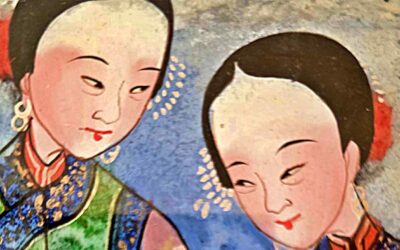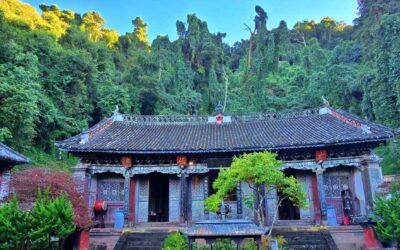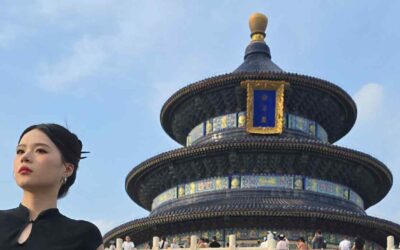Researches on the Mo culture of the Zhuang (壮族墨文化研究 Zhuang zu mo wenhua yanjiu). Huang Guiqiu。 Nationalities Press. Beijing. 2006. 321 pp
Mo culture of the Zhuang refers to the Mo beliefs of the Zhuang and the Buyi nationalities; as their culture share a high percentage of common elements, beliefs and deities.
After some years when most of the Chinese academic works were mere depictions of the main characteristics of a national minority, we find now how the subjects of works is wider and deeper in the last years, as is the opening policy that prevails in most aspects of Chinese culture were reaching the field of the social sciences.
In the field of Zhuang studies, it was customary see most of the references to the creator god Buluotou, and only in some works vague references to the goddess Miluojia.
Maybe due to the Chinese cultural influence most of the Zhuang mythological, symbolic and religious world turned around this god. On the other side we saw as the feminine deities present in every aspect of Zhuang everyday life, were neglected.
This book breaks with this established tradition: the study of Buluotou in its first chapters is followed by the introduction of the world of the goddess Miluojia. Then the author explains the relationship between these two spiritual and symbolic realms, and with that of other goddesses, as Huapo or the Lady of the Flowers who according to Zhuang beliefs, is in charge of bring babies.
Here we translate the index to give the reader an idea of the contents of this book.
- Distribution and situation of the Mo culture of the Zhuang
2. Main god of the Mo culture: Buluotou.
3. The companion of Buluotou: Miloujia.
4. Sacred land of the Mo culture, the cult to Buluotou in Ganzhuang mountain.
5. Festivals of songs of Boluotou in the sacred land of Mo culture.
6. Imprints of Mo culture: Mo culture books.
7. The world of gods and demons in Mo culture.
8. Mo culture and shaman culture
9. Mo culture and «shigong» priest culture.
10. Mo culture in today Zhuang society.
[Cite]
Last posts
Suicide Caused by the Sale of Wives in Late Imperial China
Suicide Caused by the Sale of Wives in Late Imperial China During the Qing dynasty, family relations were a constant cause of suicide, especially for women. Many of the distinctive features of Chinese marriage pushed women toward suicide, one of the most lethal being...
Discover the Treasure of Weibaoshan Mountain in Yunnan
Discover the Treasure of Weibaoshan Mountain in Yunnan Weibao Mountain (巍宝山) is one of the sacred mountains of Yunnan. Within its relatively small area it brings together a historical, artistic, natural, and monumental ensemble that makes it a unique place in China...
Imperial Processions to the Temple of Heaven
Imperial Processions to the Temple of Heaven Those who know China—even if only through a brief trip—and who have visited the Temple of Heaven in Beijing will surely have been fascinated by the sober beauty of its buildings. Yet, whether on a crowded day or during a...







